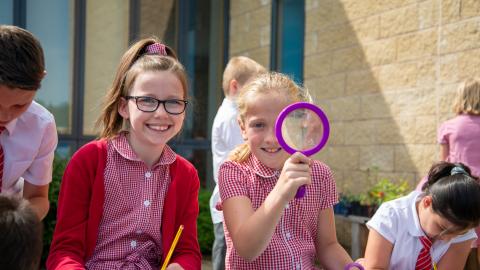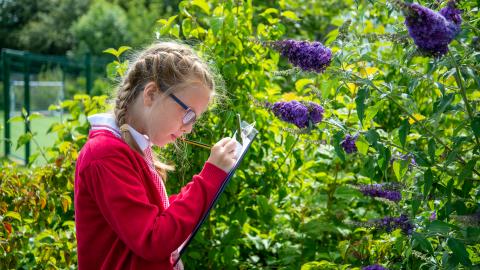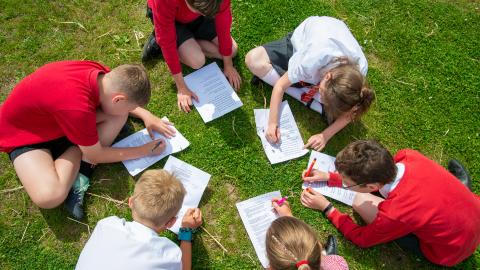
Investigation, Explanation, Observation, Conclusion, Collaboration, Question, Classification, Imagination, Creation, Evolution
Intent
At Calverley CE School we believe that a high-quality science education provides the foundations for understanding the world through the specific disciplines of biology, chemistry and physics. We will encourage children to care about and love their learning in Science.
We will do this by:
- Teaching science through practical sessions and investigation
- Encouraging pupils to think both scientifically and creatively
- Building curiosity, wonder and humour to engage children in their science learning
- Taking advantage of the outdoor environment to learn science in context
- Providing teaching of science that is well planned and ensure that pupils of all abilities make progress
- Assessing pupils based on what they demonstrate in lessons as well as tests
Implementation
Science is taught through discrete teaching to ensure children are fully aware of the subject they are learning and recognise the importance of it. Opportunities may be presented across the curriculum to revisit and apply key scientific concepts in other areas of the curriculum such as English, Computing and Geography. Lessons are mostly taught through blocked units which can be viewed here for each year group.
Through the natural curriculum progression, topics are built upon in science as pupils move through the year groups. Teachers consider knowledge as sticky and build upon and make links previous learning as they introduce new concepts. The working scientifically skills are used regularly and in a variety of contexts throughout the different key stages. This allows for pupils to develop their ability to work independently as scientists. Concepts are explored in lots of different ways and can be represented as models or diagrams to support understanding and differentiation may be observed through the use of word banks, sentences stems and other resources.
The subject lead shares new ideas and best practise in staff meetings and curriculum twilights which allows for all staff to be aware of how science is progressing. We also moderate children's learning to ensure that appropriate outcomes for children's learning are being met. Staff can access CPD such as reach out and STEM to develop their own understanding of the subject.
Beginning this year, British Science week will enrich the science curriculum - this years theme is CONNECTIONS! To find out more please click here.
Impact
The intended impact is for our children to experience a rich, engaging science curriculum where lessons pass quickly as they are constantly thinking, asking their own question and acting upon them. Science will be a lesson a that all pupils look forward to as they get work collaboratively with their peers in a range of practical activities.
Our pupils’ will have the ability to share their learning and understanding as well as general passion for the subject. We judge the success of our science curriculum on this and their academic success.
|
Autumn 1 |
Autumn 2 |
Spring 1 |
Spring 2 |
Summer 1 |
Summer 2 |
|
| EYFS |
Seasonal Changes Autumn |
Nocturnal Animals |
Seasonal Changes Winter |
Seasonal Changes Spring |
Under the Sea |
Seasonal Changes Summer Minibeasts |
|
Year 1 |
Animals including humans |
Seasonal changes |
Animals including humans |
Everyday materials |
Plants |
Seasonal changes (to be taught throughout the year) |
|
Year 2 |
Uses of everyday materials |
Living things and their habitats (micro-habitats) |
Plants |
Animals including humans |
Science - revisit |
|
|
Year 3 |
Rocks Animals including humans |
Forces and Magnets |
Light |
Plants |
||
|
Year 4 |
Living things and their habitats |
Electricity |
Animals including humans States of matter |
States of matter |
Sound |
|
|
Year 5 |
Living things and their habitats Animals including humans |
Earth and space |
Properties and changes of materials |
Forces |
||
|
Year 6 |
Animals including humans (circulatory system) |
Light |
Living things and their habitats Evolution and inheritance |
Electricity |




